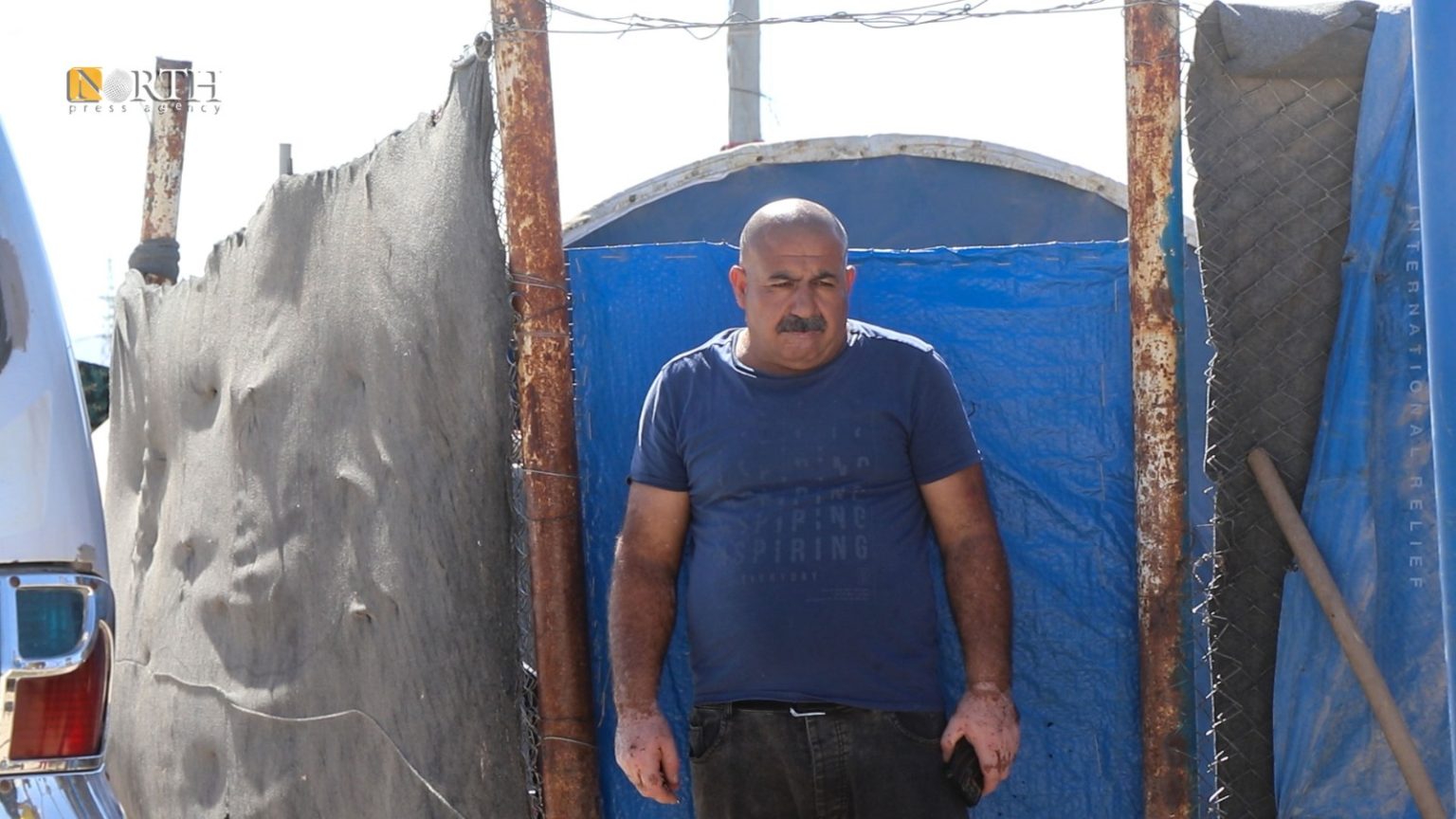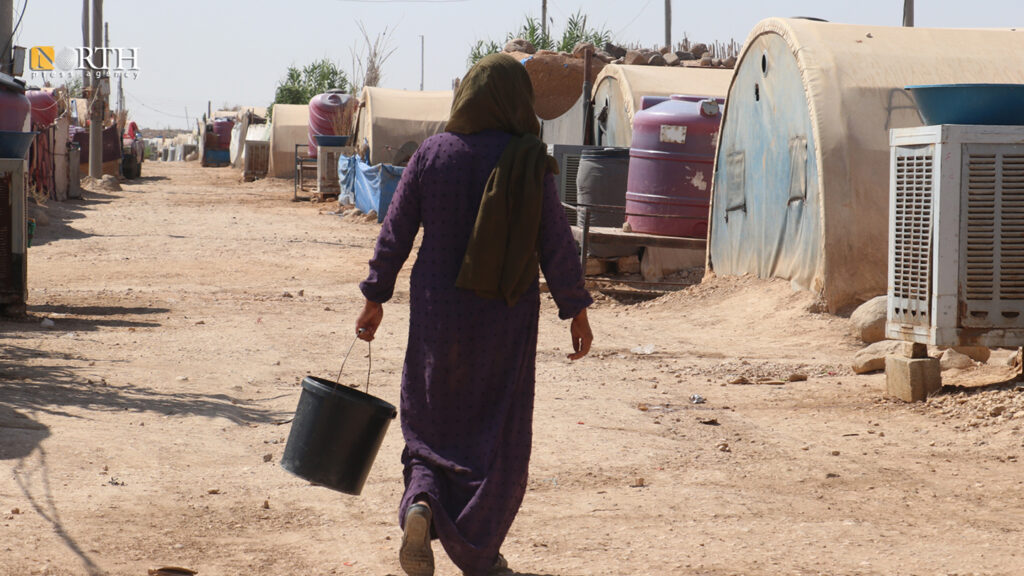Displaced Syrian farmer reflects on five years of loss, longing
By Samer Yassin
HASAKAH, Syria (North Press) – Five years ago, Abdul Karim Farman lost everything—his home, land, and livelihood—just as he had completed building his house and setting up his agricultural equipment. Today, he struggles to provide even the most basic necessities for his family while living in a camp in the countryside of Hasakah, Northeast Syria.
Farman, 42, a resident of the village of Tel Beydar in the northern countryside of Hasakah, was displaced along with his parents, wife, and eight children to Washokani Camp following the Turkish invasion of Sere Kaniye (Ras al-Ain) in late 2019.
They are among over 16,000 internally displaced people (IDPs) from the city of Sere Kaniye who have sought refuge in Washokani Camp.
“We lost everything,” Farman told North Press. He still grapples with the pain of seeing his family’s 60 years of hard work destroyed in an instant.
He recalls the frantic day of their escape, when Turkish planes flew overhead, preventing them from transporting even a fraction of their belongings.
Before fleeing, Farman had accumulated significant assets, including a full set of agricultural machinery, fuel reserves, and large stocks of wheat and barley.
He estimates his financial losses at over $100,000, as all his property was looted after the Turkish forces took control of his village.
Life in the camp is a stark contrast to his once stable existence. In his village, he never worried about providing for his family’s needs, but now, his monthly salary—equivalent to less than one million Syrian pounds (about $65)—barely sustains his large family.
“I used to give my children everything they asked for. Now, I cannot even buy them a piece of clothing,” he shared with a heavy heart.
Farman holds on to the hope of returning to his village, even as the five-year mark of his displacement passes.

His neighbors in nearby villages have told him that the Turkish-backed armed opposition factions, aka the Syrian National Army (SNA), have taken over his home, but he has no clear information about the current state of his property.
As he reflects on these difficult years, Farman dreams of returning to his land and sitting in the courtyard of his home. “The shadow of my home’s walls is dearer to me than any other house,” he says longingly.
Sere Kaniye and Tel Abyad, north and northeast Syria, have been under the Turkish occupation and the SNA control since 2019 following the so-called “Peace Spring” military operation that aimed to push away the Syrian Democratic Forces (SDF) under the pretext of “protecting the Turkish national security.”
Human rights organizations have documented cases of illegal arrests and the forced transfer of Syrians into Turkish territory, adding to the complexity of the displacement crisis.
Human Rights Watch stated in a report released in 2021 that Turkey, along with its SNA factions, had transferred detainees from Sere Kaniye to its territory in violation to its “obligations under the Fourth Geneva Convention as an occupying power in northeast Syria.”

